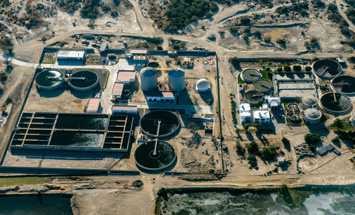Santander has developed Santander X Innovation Xperts with the ultimate goal of bringing together the best global scientific, technical and social knowledge to identify and anticipate key innovations within three areas: Future of Planet, Future of Society and Future of Tech. In order to achive this, it´s proposed:
- Bring together global experts from academia and business for the activation of knowledge levers.
- Identify macro trends and future specific innovations in the defined areas.
- Translate the opportunities for innovation in those areas that can contribute most to improving productivity and solving major societal challenges into relevant, accessible analysis.
The Santander X Innovation Xperts is structured around two interconnected communication channels:
- Talks: to know from first hand from Xperts where opportunities for innovation are.
- Whitepapers: to deep dive into the analysis of most relevant innovative trends.
This initiative is run in collaboration with Esade, wich coordinates the implementation of the different activities of the Santander X Innovation Xperts.
Talks SX Innovation Xperts 2023

Artificial Intelligence | See Talk
22 June 2023 | Esteban Moro | Watch video | White paper
Along this talk, we will discuss the impact of Generative Artificial Intelligence (GenAI) on today's economy and society. The recent advancements and rapid progression of GenAI will be debated, along with its growing impact on labor markets. The discussion will also focus on whether GenAI leads to a monopolization by a limited number of companies due to the high costs of AI tools, and if there are sectors or activities that will be more affected than others. The balance between adopting AI and its potential displacement of the human workforce will be discussed in detail.
Additionally, issues such as the protection of intellectual property rights and how GenAI is affecting education and teaching will be addressed. Finally, the conference will explore the future opportunities that AI might provide and how it could change our future in ways we cannot yet foresee.

Esteban Moro | See full bio
Esteban Moro is data scientist at the MIT Connection Science at IDSS and a tenured professor at Universidad Carlos III. Previously, he was a visiting professor at MIT Media Lab and researcher at University of Oxford. He holds a PhD in in Physics and is an affiliate faculty at Joint Institute UC3M-Santander on Big Data at UC3M and the Joint Institute of Mathematical Sciences (Spain). He has published several peer-reviewed, widely-cited studies on the interaction between technological advances and the explosion of data in our cities and work environments.

Energy storage technologies and their role in decarbonization | See Talk
12 September 2023 | Dharik S. Mallapragada | Watch video | White paper
In this talk we delve into the increasingly pertinent topic of energy storage solutions, bolstered by the recent shift in the global energy market in 2022. This talk aims to bridge the gap between academic and technical discourse, focusing on potential needs, possible hindrances, and sectors promising the highest returns on investment to expedite energy transition. The conversation will be enriched by insights from the speaker's role in the MIT Energy Initiative, widely recognized as a prime source of multidisciplinary and result-driven strategies for energy transition. It promises to bring forth a balanced perspective on the challenges and opportunities in our collective pursuit of decarbonization.

Dharik S. Mallapragada | Ver Bio
Dharik S. Mallapragada is a Principal Research Scientist at the MIT Energy Initiative (MITEI), where he leads the Sustainable Energy Transitions Group. Dr. Mallapragada’s research focuses on planning and operating resilient, low-carbon energy systems as well as conceptualization, design and integration of emerging energy technologies. Recently, he led the systems modeling effort for the Future of Energy Storage study, an interdisciplinary MIT project exploring the role for storage in future low-carbon grids. Prior to MIT, Dr. Mallapragada spent nearly five years in the energy industry working on a range of sustainability-focused research topics. He recently served as a member of the Massachusetts Commission on Clean Heat, and serves on the advisory committee for the Open Energy Outlook project, a multi-institution effort to create open-source energy systems models and data sets. He also co-leads systems thrust activities at the Center for Decarbonizing Chemical Manufacturing using Sustainable electrification (DC-MUSE). Dr. Mallapragada holds a M.S. and Ph.D. in Chemical Engineering from Purdue University and a B.Tech. in Chemical Engineering from the Indian Institute of Technology, Madras, India.

Achieving Decarbonization of the Food Chain | See Talk
7 November 2023 | Tim Searchringer | White paper
This talk will delve into multi-disciplinary solutions to decarbonize food production and distribution. The presentation emphasizes the necessity of informed arguments from academic and technical fields in reframing this broader discussion. Key points will include recognizing potential needs and projected bottlenecks that may impede progress towards decarbonization, leveraging on Mr. Searchinger’s role and experience to offer strategic advice on where investments could yield the most substantial benefits towards the ultimate goal of decarbonization. The focus will not just be on theoretical considerations but also on practical implementations for a more sustainable and carbon-neutral food chain.

Tim Searchringer | Ver Bio
Tim Searchinger is a Senior Research Scholar at the Princeton School of Public and International Affairs and Senior Fellow and Technical Director for Agriculture, Forestry & Ecosystems at the World Resources Institute. He specializes in the intersection of ecology, agronomy, and economics to address the global challenges of feeding a growing population while mitigating deforestation and greenhouse gas emissions from agriculture. His influential work has been published in renowned scientific journals like Science and Nature, covering topics such as bioenergy, nitrogen pollution, and the environmental impact of agriculture. Searchinger's research extends worldwide, with projects spanning Colombia, Rwanda, Zambia, Vietnam, and Denmark, encompassing scientific and policy-related aspects. Prior to his academic career, he worked as an environmental attorney, leading initiatives on agricultural policy and ecosystem restoration. Searchinger holds a J.D. from Yale Law School, where he served as Senior Editor of the Yale Law Journal.
White papers

Challenges & opportunities in the global rise of older adults.
Find out more

Underestimating the global land squeeze.

2022: Talks SX Innovation Xperts Advisory Board
The Santander X Innovation Xperts Advisory Board is formed by Prof Clare Shine, Prof Sarah Harper and Prof Olivier de Weck (the Xperts) and representatives from Banco Santander and Esade.
The Advisory Board will meet twice a year to discuss and reflect on the trends, challenges and possible actionable investments with the greatest economic and social potential within the areas of Future Planet, Future Society and Future Technology, aiming to inform the global audience about the innovation opportunities that exist in these fields.
Future Tech | See Talk

The unprecedented fast pace of technological change in the last two decades highlights not only the opportunities, but also the challenges posed by the transfer of a vast majority of our life to the digital realm.
From industrial production to commerce and to personal relationships, from information to micro-social coordination and to entertainment, everything is becoming more and more traversed and facilitated by digital-oriented technologies.
Future Society | See Talk

The 20th century socio-demographic equilibrium was characterized by a stable inflow of workforce into equally stable labor-intensive industries, cementing a social inter-generational pact within Western economies that enabled the consolidation of welfare economies.
In contrast, our current societies are experiencing fundamental transformations that challenge this equilibrium in the context of four converging trends: the rise of a global middle class beyond western borders, the exhaustion of the demographic and labor bonus in western societies, the aging of its population, and the automation-driven transformation of worldwide labour markets.
Future Planet | See Talk

Drastic and irreversible climate change would bring an ultimate threat to human growth and development. That long-term limit faces a short-term trade-off due to the changes in the way we consume, manage resources and interact that are necessary to reduce this risk. Fortunately, there are two great ‘trade-off hacks’ we can draw on as a society: advances in technology and changes in our perceptions, attitudes and behaviors.
Technology is the great source of limited removal for humanity. Given its crucial importance in the face of a risk such as climate change, it is surprising that there is so much room for improvement: at the moment, public and private R&D on green technologies only represent a 4% share of worldwide R&D investment.

Clare Shine | See full bio
Director and CEO of the Cambridge Institute for Sustainability Leadership (CISL)
Clare Shine is a UK-qualified barrister and a member of the Santander X Innovation Advisory Committee, an Associate of the Institute for European Environmental Policy, a member of the IUCN Commission on Environmental Law and the World Commission on Protected Areas, a member of Cambridge Public Health steering committee, and a professional facilitator and mediator.
Clare has been at the nexus of sustainable development, organizational change and culture for over three decades. She was previously Vice President at Salzburg Global Seminar where she worked with senior leaders, intergenerational teams and Fellows from nearly 180 countries and led multi-year programs, partnerships and networks. Under her leadership, Salzburg Global built collaborative alliances linking research, policy, business and entrepreneurial practice and launched a series of cross-border networks for bottom-up innovation.
Previously worked as an independent environmental lawyer and policy adviser for intergovernmental bodies, governments, business and NGOs, focusing on biodiversity and climate change, coastal and marine management, public health, governance and international trade, human rights, and conflict transformation. She has played an influential role in the evolution of regional and global policy frameworks and led multi-sector capacity-building around the world.
Clare began her career in the media and publishing industry and was the Financial Times’ theatre critic in France for ten years. She holds an M.A. in English literature from Oxford University, UK and post-graduate degrees from London University and the Sorbonne University, Paris, France.

Sarah Harper | See full bio
Director of the Oxford Institute of Population Ageing
Sarah is Clore Professor of Gerontology at the University of Oxford and the Director of the Oxford Institute of Population Ageing. She has a background in Anthropology and Population Studies holding a MA from Cambridge University and a DPhil from the University of Oxford. Her research focuses on societal change arising from population ageing, with a specific interest in healthy life expectancy, the family and intergenerational relationships. Sarah was appointed a CBE for services to Demography in 2018.
Sarah served on the UK Prime Minister’s Council for Science and Technology, which advises the Prime Minister on the scientific evidence for strategic policies, and chaired the Government Review into the Future of the UK's Ageing Population. She is Editor of the Journal of Population Ageing, Springer Nature.

Olivier L. de Weck | See full bio
MIT. Apollo Program Professor of Astronautics
Olivier de Weck is the Apollo Program Professor of Astronautics and Engineering Systems at the Massachusetts Institute of Technology. He earned degrees in Industrial Engineering from ETH Zurich and Aerospace Systems from MIT (SM ’99, PhD ’01) where he is the director of the Engineering Systems Laboratory. His main research is in Systems Engineering with a focus on how complex technological systems, such as satellites and launch vehicles, are designed and optimized and how they evolve over time.
Methodological contributions that his group has made include Time-expanded Decision Networks (U.S. patent 8,260,652), Generalized Multi-Commodity Network Flows (GMCNF), as well as software tools such as SpaceNet and HabNet. He is a Fellow of AIAA and a former chair of its Space Logistics Technical Committee. He helped develop the first integrated model of the Next Generation Space Telescope (now JWST) and the concept of interplanetary supply chains.
He has authored or co-authored over 400 publications for which he has been recognized with twelve best paper awards since 2004. Prof. de Weck previously served as Editor-in-Chief of the journal Systems Engineering from 2013-2018 and is a former Senior Vice President of Technology Planning and Roadmapping at Airbus where he was responsible for roadmapping a $1-billion R&D portfolio. His passion is to improve life on our home planet Earth through research and education, while paving the way for humanity’s future off-world settlements.

About SantanderX
Banco Santander is firmly committed to progress and inclusive sustainable growth with a long-standing support program for education, employability and entrepreneurship with the aim of helping people to improve their career perspectives, setting it apart from the world's other financial institutions. For over 26 years, the bank has supported more than 1 billion people and companies through agreements with around 1,300 universities and institutions in 25 countries and allocated over 2.2 billion euros.
Through Santander X, the bank supports entrepreneurial initiatives and small businesses, offering them access to resources that allow them to grow and progress. The objective is to contribute to the development of our communities by supporting companies that develop solutions to today's great challenges and that, in addition, represent a professional opportunity for those who launch them.

About Esade
Founded in 1958, Esade is a global academic institution with campuses in Barcelona and Madrid and a presence throughout the world, thanks to collaboration agreements with 185 universities and business schools. Each year, more than 11,000 students participate in courses organised by three academic units: Esade Business School, Esade Law School and Executive Education. Esade Alumni, an association made up of more than 67,000 Esade graduates, maintains an international network of 72 international chapters.
Esade’s graduates represent 147 nationalities and are present in more than 100 countries. Esade’s international outlook has enabled the school to secure top positions in the main international business school rankings, including those published by the Financial Times, QS, Bloomberg Businessweek and América Economía. Esade is a member of Ramon Llull University.

















